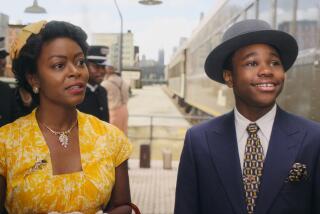Distorted View in ‘Burning’
- Share via
I regret that Charles Champlin seriously misstates the issue posed by the falsifications of the film “Mississippi Burning” (Jan. 24).
As a writer in film and TV for 30 years, and a former “civil rights activist,” I was deeply offended by the film, not because it altered facts, a common enough trait in the historical-film genre, but because it distorts the very meaning of those events. The gains of the civil rights movement came about by the use of nonviolent means under the inspired leadership of blacks such as Dr. Martin Luther King Jr. The terror in the South was not ended by white Rambos or the Dirty Harry-like tactics, fictional or otherwise, of the FBI. The federal government, pressured by the actions of courageous, unarmed and nonviolent common people, black and white, was forced to act, often tardily and ineffectually. For a generation unfamiliar with this history, no greater disservice could be done than to give the impression that the violent and unscrupulous behavior depicted in this film “solved” anything. As Mrs. King and the family of at least one of the actual victims have protested, it is an insult to the memory of the real people who were not afraid to risk their lives while acting with moral integrity.
As a writer in the entertainment industry, I see no reason to apologize for altering some historical facts to enhance or clarify a story. “Mississippi Burning” goes much further and, for me, defines the crucial difference between “art” and “a lie.”
RON AUSTIN
Studio City
More to Read
Only good movies
Get the Indie Focus newsletter, Mark Olsen's weekly guide to the world of cinema.
You may occasionally receive promotional content from the Los Angeles Times.








